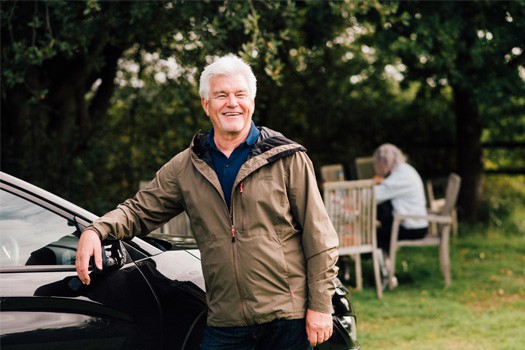Tips on fatigue for older drivers
As part of our campaign to raise awareness of the issues surrounding older drivers in the UK and to offer support and guidance to those driving in later life, IAM RoadSmart’s Chief Examiner, Richard Gladman, shares his tips on ways to stay alert and avoid tiredness.
- Older people can be more susceptible to fatigue so tiredness can prove a real problem. Extreme tiredness can lead to micro-sleeps, whatever your age. This is a short episode of drowsiness or sleep that could last a fraction of a second or up to 30 seconds. A car driving at 70 mph will travel 31 meters per second, giving plenty of time to cause a serious crash during a micro-sleep.
- The effects of losing one or two hours of sleep a night regularly can lead to chronic sleepiness over time. So, ensure you are well rested and feeling fit and healthy before you set off.
- Make sure you take regular rest breaks to split up the journey when driving on a long, boring stretch of motorway. It’s good practise to stop at least every two hours and it’s essential to take a break before the drowsiness sets in.
- If necessary, plan an overnight stop. If you feel too fatigued to carry on driving, then book yourself into a hotel at the next service area and sleep it off. Wake up fresh with a good breakfast and carry on your journey. It’s good to note that a caffeine high may be a quick fix, but it’s not a long-term solution and certainly no substitute for proper sleep.
- Older people can get tired quickly, even when they haven’t been physically exerting themselves for long periods of time. So, avoid setting out on a long drive near the end of the day. It’s best to start your journey earlier, when you’re more alert.
- If possible, avoid driving between the two peak times for sleepiness. These are between 3am and 5am and between 2pm and 4pm.
- If you’ve taken prescribed medication, then seek advice from your GP as to whether you should be driving or not. If bought over the counter, then read the instructions on the pack or speak to a pharmacist.

Richard says: “Whatever your age, you need regular sleep to perform at your highest standards. Driving requires full concentration at all times and if you’re tired, your ability to concentrate is reduced. Internal body clocks (circadian rhythms) are usually set to deal with normal lifestyle patterns, so extra care needs to be taken when you’re driving during a time you would normally be at rest. Stop, rehydrate and rest if you need to. This is particularly true for those who are driving in later life, but the rule applies to all.”
For further tips and advice on driving in later life go to IAM RoadSmart’s website at www.iamroadsmart.com/the-road-ahead

